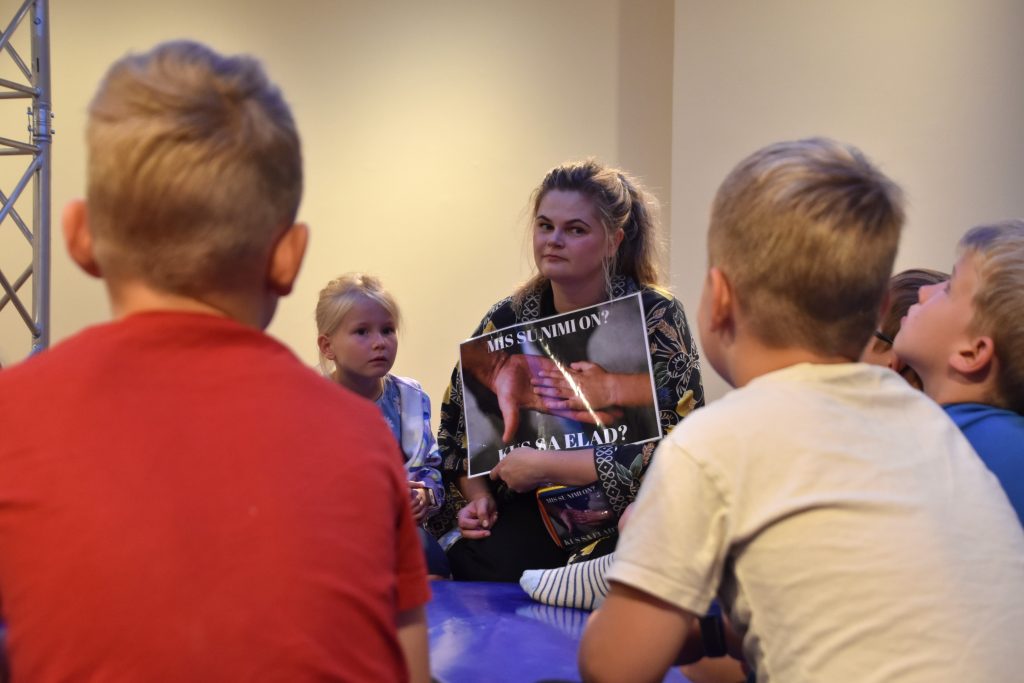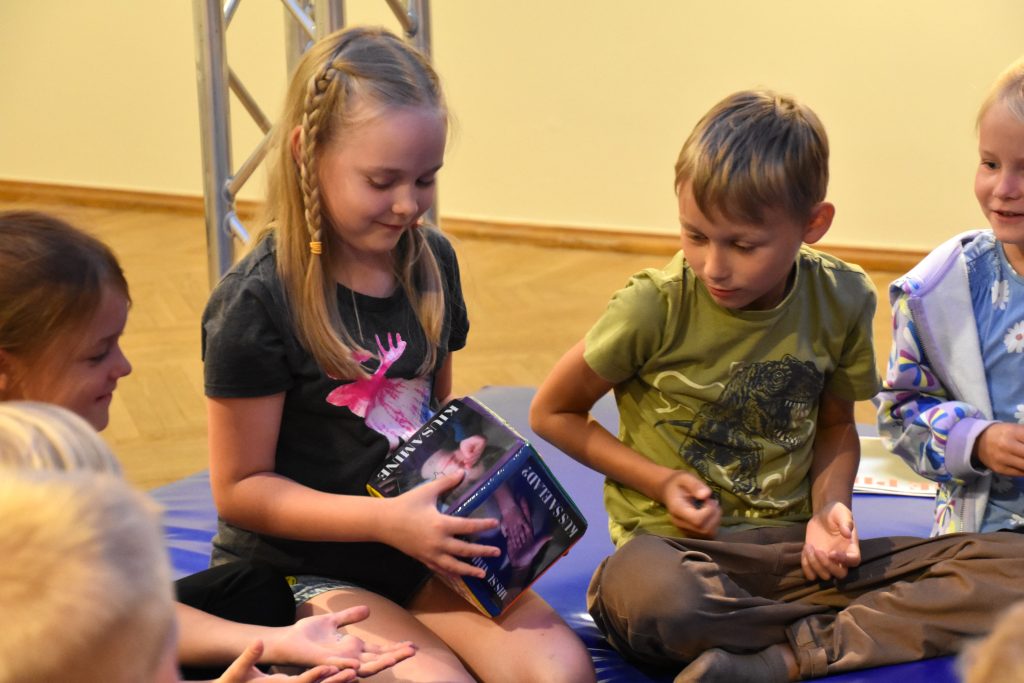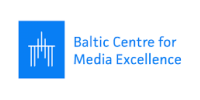BECID Team’s Achievements: Summer 2024 in Review
Here you will find a comprehensive review of the BECID team’s achievements in summer 2024. This overview includes events organized and attended by the team. You will also find our team members’ latest publications and media coverage.
BECID organises
- On August 9, The Tartu Art Museum opened an exhibition titled “The Secrets of the Leaning Building” which features a room focused on cyberbullying. The room “Stop Bullying – Make Your Message Safe!” was created in collaboration between Bully-Free School (KiVa) and BECID.
Publications and media
- Klaassen, M., Murumaa-Mengel, M., & Himma, M. (2024). Social media microinterventions: Testing information activism as a media and information literacy tool. Journal of Media Literacy Education, 16(2), 1-13. https://doi.org/10.23860/JMLE-2024-16-2-1
- Juraitė, K. & Balčytienė, A. (2023). Media and Information Literacy as a Strategic Guideline Toward Civic Resilience: Baltic-Nordic Lessons. In M. Jaakkola, T. Durán-Becerra, & O. B. Onyancha (Eds.), Media and information literacy for the public good: UNESCO MILID Yearbook 2023 (pp. 51-80). http://dx.doi.org/10.26620/uniminuto/978-958-763-705-2
- Podcast “DigiÄKK: Digi- ja meediapädevuste õpetamine läbi mängu” [DigiÄKK: Developing Digital and Media Competences through Games] with Inger Klesment and Maria Murumaa-Mengel (UT).
- Comic “Põras Pets: Digitaalne jalajälg” [Pets the Pig: Digital Footprint] in Estonian children magazine Täheke with the help of Inger Klesment, Maria Murumaa-Mengel and Annaliisa Post (UT).
- On June 12, Maia Klaassen (UT) gave an interview about feeding social media users’ data to AI training data to Estonian TV channel TV3.
- On June 13, Maia Klaassen (UT) gave an interview about fake fack-checkers who produce malinformation about the Ukraine to IDMO / Zeta Luiss.
- On July 2, Maia Klaassen (UT) took part in X Spaces interview-podcast series ‘News e Commenti’.
- On July 3, Maia Klaassen (UT) gave an interview about the far-right spreading misinformation in Central Eastern European countries to VSquare.
- On July 10, Gretel Juhansoo (UT) gave an interview about the spread of conspiracy theories on social media to Estonian radio channel Vikerraadio.
- On July 11, Maia Klaassen (UT) gave an interview about social media algorithms to Estonian radio channel Vikerraadio.
- On July 23, Maria Murumaa-Mengel (UT) gave an interview about social media addiction to Estonian radio channel Raadio Kuku.
BECID is represented
- On June 3 Gunta Sloga (BCME) took part in the public discussion “Threats to democracy on the eve of the European Parliament elections”.
- On June 5, Maia Klaassen (UT) welcomed visitors from the Heritage Foundation, Chatham House, Queen Mary University of London, El Pais, DGAP’s Research Institute, Le Figaro, Defence One, and La Stampa, as part of a delegation invited and hosted by the Estonian Ministry of Defence.
- On June 8, Gretel Juhansoo (UT) carried out activities about digital media competencies at Tabivere Basic School’s family day.
- On July 8–10, Auksė Balčytienė (VMU) attended the 5th International ESS Conference in Lisbon, where she spoke about “(Social) Media consumption and Beliefs in Conspiracy Theories” and shared her insights on the results of a comparative study on media literacy. Read more.
- On June 10, Maia Klaassen, Maria Murumaa-Mengel, Gretel Juhansoo (UT) welcomed visitors from the The Bulgarian-Romanian Observatory of Digital Media, BROD, in the form of Andy Stoycheff and Milena Koleva-Zvancharova.
- On June 10, Maria Murumaa-Mengel, Maia Klaassen and Inger Klesment (UT) conducted a training on information disorganisation, checking information and children’s digital world at Tartu Catholic School.
- On June 12-17, Jānis Buholcs (ViA) participated in the 29th conference of the Association for the Advancement of Baltic Studies (AABS) in New Haven, U.S. with a paper “Approaches to ambiguity among Latvian fact-checkers”.
- On June 13, Maia Klaassen (UT) conducted a workshop on resolving conflicts arising from false information for elementary school teachers.
- On June 13, Gretel Juhansoo (UT) gave a presentation “TikToki maja: Kuidas kutseharidus saab toetada ühiskondliku mõjuga projektide elluviimist” [TikTok House: How vocational education can support the implementation of projects with social impact?] at Erasmus+ Vocational Education Summer School.
- On June 13, Maria Murumaa-Mengel (UT) gave a presentation “Research+Teach+Outreach: What do we do to fight the information disorder?” to communication experts from Police and Border Guard Board and the public sector.
- On June 27, Maria Murumaa-Mengel and Inger Klesment (UT) conducted a training “The media worlds of children and young people: how the library can help develop media and information competences” at the summer academy of librarians.
- On July 16–19, Maia Klaassen (UT) attended the DCN Global conference. She spoke in the panel on media and information literacy policies and regional challenges.
- On August 6, Gretel Juhansoo (UT) conducted two workshops on the spread of conspiracy theories on social media at inspiration camp for chemistry teachers.
- On August 8, Maria Murumaa-Mengel (UT) gave a presentation on developing media litreacy in history and social studies lessons at summer school of Estonian Society of History and Social Studies Teachers.
- On August 14, Inger Klesment (UT) carried out digital security games for the children of the Tartu Toy Musem summer camp.


- On August 22, Maria Murumaa-Mengel (UT) conducted a training on information noise and information verification for school and kindergarten teachers from Kuusalu.
- On August 26, Maria Murumaa-Mengel and Maia Klaassen (UT) conducted a training on information verification critical information literacy and critical information literacy for Tartu VOCO teachers and leaders.
- Journalists from Re:Baltica participated in the annual Conversation Festival Lampa in Cēsis, Latvia. Inese Braže took part in the discussion titled “#Cancel media. If there were no journalists?”. Additionally, Evita Puriņa, head of Re:Baltica’s fact-checking team Re:Check, joined a debate on misinformation and disinformation in the daily information landscape.
- Evita Puriņa and Inga Spriņģe (Re:Baltica) participated in events organized by SkeptiCafe, a non-profit organization dedicated to promoting critical thinking and science-literacy in Latvia. Evita provided insights into the formation and spread of conspiracy theories, while Inga discussed the interplay between politics, media, and society.
- Sanita Jemberga (Re:Baltica) conducted a workshop for about 30 young lawyers, focusing on journalism work methods and legal aspects.
- Inese Braže (Re:Baltica) spent a week at a camp in Germany, where she lectured Latvian youth from around the world on how to navigate the media, recognize false or misleading information, verify facts, and protect themselves in the digital environment.
- Evita Puriņa (Re:Baltica) took part in a hackathon aimed at strengthening resistance of NGO’s to disinformation and misinformation.
Varia
- Delfi LT Joined European Fact-Checking Network to fight AI@EUElections.
- As part of The Climate Facts Europe project, Delfi Melo Detektorius released an in-depth report that explores how disinformation spreaders exploit food-related fears & misinformation tactics to manipulate Europeans. You can download full report in .pdf in English here.
- A new disinformation campaign, reminiscent of the Pizzagate scandal, has falsely accused Olena Zelenska, the wife of Ukrainian President Volodymyr Zelensky, of trafficking children through her foundation. The second international investigation by fact-checking organisations in collaboration from Lithuania (Delfi Lithuania), Spain (Maldita.es), Ukraine (StopFake), Georgia (Media Development Foundation), Argentina (Chequeado), Colombia (La Silla Vacía), Mexico (Animal Político) and Venezuela (EsPaja), reveals the patterns and tactics behind these hoaxes, which are used to undermine Ukraine’s legitimacy and target influential women with baseless accusations. Read in Lithuanian or in English.
- VMU has published several news and blogs posts on BECID’s website:
- How journalists can contribute to teaching media literacy in schools: the “Lie Detectors” experience
- Initial results of BECID survey reveal: part of the Baltic population lacks knowledge about fact-checking
- Junior Researcher P. Lenčiauskienė: “School should become a place where students learn to live in virtual space”
- Junior researcher K. Berksun: “Youth representatives in Lithuania agree – media literacy education should be a necessity, not an option”
- DIGIRES presents an innovative handbook of inclusive media literacy exercises for teachers
- Experts in Lithuania discuss how to tackle the challenges of indifference, polarisation and the digital divide







